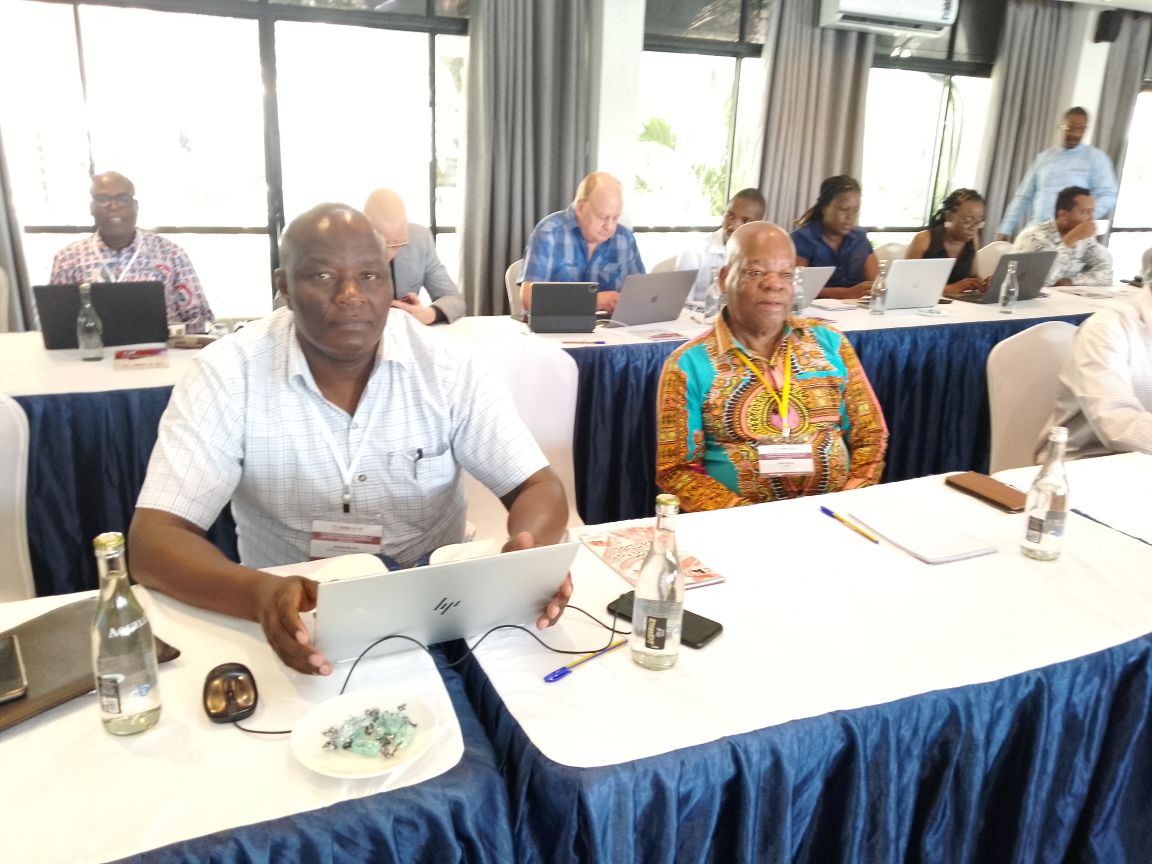|
Getting your Trinity Audio player ready...
|
MOMBASA, KENYA – There is an interconnectedness of communication, commercialisation, and innovation systems related to genome editing, a multi-stakeholder strategic workshop on biotechnology in this coastal city of Kenya that is meant to improve African agriculture has revealed.
Moderating a roundtable discussion on insights into genome editing/biotech communication and advocacy, Veronica Mwaba, the Director of DsaT based in Zambia said communicators ought to effectively communicate the impact of the GEd research to all stakeholders.
“Communication should be timely to educate stakeholders to enable decision making. It should ensure that the information meets the needs of the stakeholders. Journalists have to simplify the science and make it easier for the audience and other stakeholders to understand.
“Communicators have to customize the information to suit the audience (audience mapping) and also follow the Dos and Don’ts of the stakeholders,” Mwaba said.
Nkechi Isaac of Alliance for Science who is based Nigeria, speaking during the same roundtable discussion, said communicators need capacity building on biotechnology.
She encouraged scientists to get some basic skills in communication and urged communicators to also get some basic knowledge in science.
“Communicators need to use appropriate infographics, and social and traditional media to enhance the message to be communicated. They should build credibility and trust across stakeholders and also in the area of IP protection and confidentiality,” Nkechi said.
Florida Maritim, the Assistant director of the Kenya Agricultural and Livestock Research Organization (KALRO) encouraged communicators to devise necessary strategies including the use of credible and respected public figures of society such as ambassadors.
“Scientists and science communicators should go into the social media space to share relevant information. Don’t stay glued to the lab. Communicators should incorporate storytelling and use everyday life events to simplify complex scientific language,” she said.
Speaking on Innovation Ecosystem for Genome Editing, Dr Josphat Muchiri of the National Biosafety Authority of Kenya said genome editing guidelines for Nigeria, Kenya and Malawi are ready and published.
He said Ghana, Ethiopia, Burkina Faso have validated but not yet published the guidelines while Mozambique and Zimbabwe have drafted and still working on them.
Dr. Muchiri encouraged harmony between guidelines developed in the various regional blocks, including AUDA NEPAD, to intervene to achieve harmonization.
“Regulators should let the audience and stakeholders know that GEd is not totally new but an improved version on the existing biotechnology and plant breeding techniques. Regulators also need capacity building for in GEd,” he added.
It also emerged that Africa needs to invest more into research and development to improve economies and livelihoods. Thus, modern biotech should be applied holistically to bridge the existing gap in the educational curriculum.
Mr. Noah Paul from the Scientific and Industrial Research and Development Centre (SIRDC), said the private sector should be urged to invest more into research and development in Africa.
“Several GEd projects are currently ongoing on the African continent namely striga resistant sorghum, disease resistant banana, rice, and so forth. This is an indication that Africa is involved in the implantation of GEd to increase agricultural productivity.
“We need to scope for ideas (based on need), develop business plans to drive our research and development agenda. We need to have a proof of concept, get funding and proceed to develop the product. There is insufficient funding from the African countries hence there is need for us to seek alternative funding from the private sector and other funding organizations,” Mr. Paul said.
Dr Seth Manteaw from the Council for Scientific and Industrial Research of Ghana said there is need to establish intellectual property (IP) management offices to support research and development and commercialization.
“Africa needs to agree on its own trade standards to facilitate trade on the continent. There is need for us to go through all the rigors to patent our technology and products both on the continent and internationally. We need to take advantage of innovations instead of relying on inventions. We need to expand our market beyond the continent,” Dr. Manteaw said.
Mr. Regan Mudziwapasi, from the Africa University, Zimbabwe said there is a need to examine existing IP laws and see how best to improve upon them to protect IP indigenous resources and knowledge.
“It is high time we got the technology from the laboratory onto the market. The era of staying in the laboratory forever is over!! Yes we can! We need a lobbying group that can help African researchers to get access to the technology. We need to encourage the building of equipment, and make reagents and consumables for research in Africa,” Mudziwapasi said.






